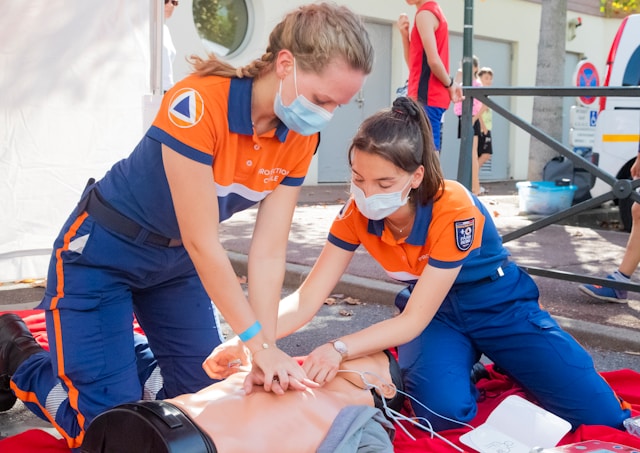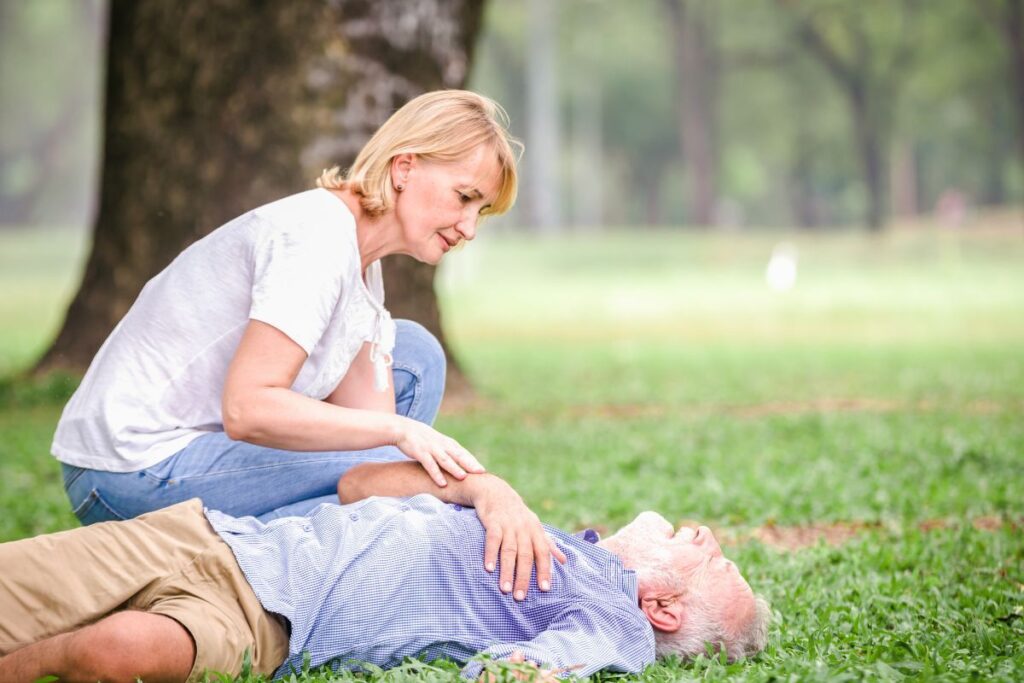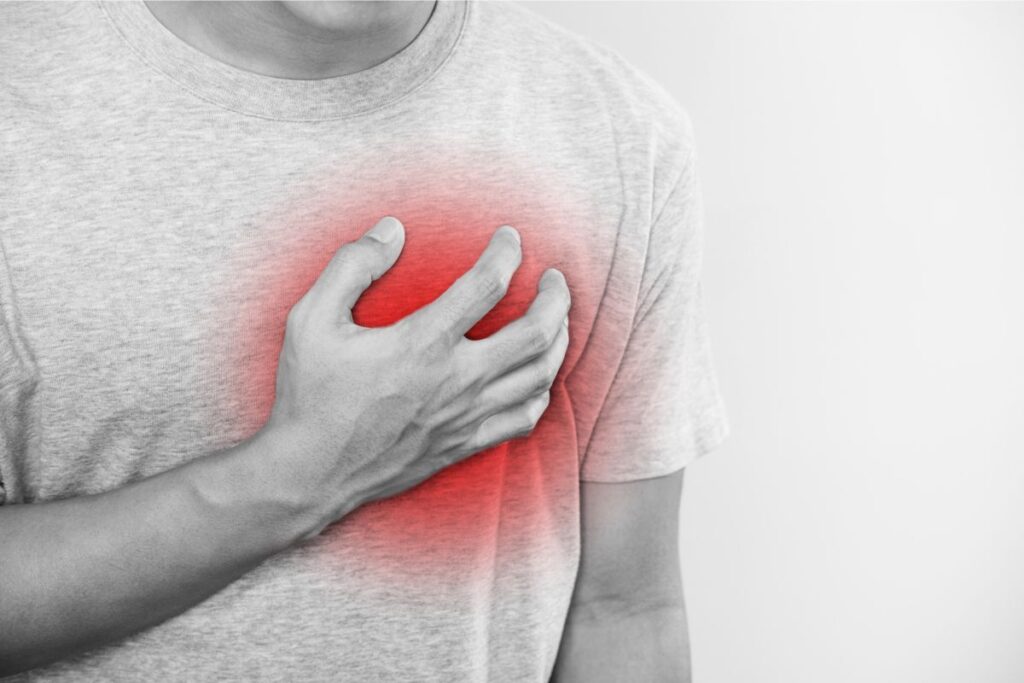Restart A Heart Day 2024: Learn How To Restart A Stopped Heart

SEARCH BLOG POSTS
SEARCH BY CATEGORIES
SEARCH BY MONTH
Every second counts when someone’s heart stops beating. That’s why, on Restart A Heart Day 2024, Cornwall Air Ambulance is joining forces with other first responders across the UK to empower our community with life-saving skills.
Cardiac arrest can happen to anyone, anywhere, at any time. By learning how to perform CPR and use an automated external defibrillator (AED), you could restart a heart and be the difference between life and death for a friend, family member, or even a stranger. Join us in our mission to create a Cornwall where everyone is prepared to save a life.

What is Restart A Heart Day?
Restart a Heart Day is an annual global awareness day aimed at improving the public’s knowledge to help restart a heart and save more lives. Typically taking place on October 16th each year, the main goal of Restart A Heart Day is to increase the number of people who can perform CPR or use a defibrillator in emergencies, thereby improving survival rates for out-of-hospital cardiac arrests. Originally starting in Europe, Restart a Heart Day is now recognised and celebrated in many countries worldwide.
What Can Restart a Stopped Heart?
When a heart stops beating (often referred to as “cardiac arrest.”), it stops pumping blood to the brain and other vital organs. Without prompt intervention, it can rapidly lead to fatality. There are several ways to help restart a stopped heart:
- CPR: The first and most crucial step in restarting a stopped heart is CPR (Cardiopulmonary Resuscitation). This involves delivering chest compressions to the patient to manually pump blood through the body, helping maintain blood flow to vital organs until more advanced treatment can be administered.
- Defibrillation: Defibrillation involves delivering an electric shock to the heart using a device called a defibrillator. The shock can help restore a normal heart rhythm in cases of certain types of cardiac arrest. These life-saving machines are designed for public use and can be found in many public spaces across the UK.
- Advanced Cardiac Life Support (ACLS): This is typically performed by medical professionals and includes CPR, defibrillation, and the use of certain drugs like epinephrine (adrenaline) to stimulate and restart the heart.
It’s important to note that the effectiveness of these interventions often depends on how quickly they are initiated after the heart stops. That’s why public knowledge of CPR and the location of AEDs is crucial for improving survival rates from cardiac arrest and why Restart A Heart Day is so vitally important.

Can a Defibrillator Restart a Heart?
When a person experiences certain types of cardiac arrest, their heart doesn’t completely stop – rather, it begins to quiver or “fibrillate” ineffectively. But can a defibrillator restart a stopped heart?
A defibrillator doesn’t actually “restart” a heart in the literal sense; instead, it works by stopping chaotic electrical activity in the heart to allow it to reset itself. The defibrillator delivers a controlled electric shock to the heart, momentarily stopping all electrical activity. This brief pause gives the heart’s natural pacemaker a chance to regain control and restore a normal, organised rhythm. The shock essentially acts like a “reset button” for the heart’s electrical system. It’s important to note that defibrillation is only effective for specific types of cardiac arrest, particularly ventricular fibrillation and pulseless ventricular tachycardia. In other cases, such as when the heart has completely stopped (asystole), other interventions like CPR and medication are necessary.
How to Find Your Nearest Defibrillator
In an emergency situation, you should always call 999 straight away and the call handler will advise you what to do and, if appropriate, where to find the nearest defibrillator.
There is also an online tool called Defib Finder which uses up-to-date data from the national defibrillator network to allow you to find the nearest defibrillator to your location. Funded and managed by the British Heart Foundation this tool raises awareness of where all of the defibrillators in the UK are located. Being armed with knowing the location of your nearest defibrillator is important, but calling 999 should always be your first action if you encounter someone having a cardiac arrest.
How to Use a Defibrillator to Restart a Heart
Using a defibrillator within 10 minutes of an abnormal heart rhythm starting can save a life. First, ensure the scene is safe and call 999 for emergency medical services. The defibrillator will verbally give you instructions about exactly what to do, so try to stay calm and follow the directions carefully.
- Turn on the device and follow its voice or visual prompts
- Remove any clothing covering the person’s chest and attach the adhesive electrode pads to their bare skin as indicated by the diagrams
- The defibrillator will electronically analyse the heart rhythm and determine if a shock is needed
- If instructed, make sure no one is touching the patient and press the shock button
- After the shock, or if no shock is advised, immediately begin CPR if the person is unresponsive and not breathing normally
- Continue following the defibrillator’s prompts until emergency responders arrive
Can CPR Restart a Heart?
CPR alone cannot restart a heart once it has stopped completely, however performing this action on a patient experiencing heart problems can help to maintain regular heart rhythms until the emergency services arrive at the scene and save a life.
Why Learning CPR is Important
CPR plays a crucial role in maintaining blood flow and oxygen supply to vital organs during cardiac arrest. It buys time until advanced medical help arrives, increasing the chance of successful defibrillation, improving survival rates and reducing the risk of brain damage.
How to Learn CPR
Many organisations offer CPR training across the UK and your local community centre or workspace might also offer opportunities for learning this life-saving skill. Whilst there may be some online CPR courses which also offer this training, hands-on training is best for skill development. Many people are surprised at the speed and strength required to perform effective CPR, so finding a course where you can practice the technique in person is the best way to learn effective CPR.
Some organisations providing CPR training can be found below:
- St John Ambulance
- British Red Cross
- Royal Life Saving Society UK
- Local fire service
- Cornwall Council
- Local NHS trusts
- Local colleges or adult education centres
Why is Restart A Heart Day Important for Cornwall Air Ambulance?
Responding to over 1,000 missions annually, our crew is here at a critical time when every second matters. Restart a Heart Day is crucial to help us raise awareness about the importance of early intervention in saving lives during cardiac emergencies. Knowing CPR means that one day, you could help save the life of your family, friend, or stranger.
In the UK, less than one in 10 people survive an out-of-hospital cardiac arrest. Survival rates increase to 40% or higher when bystander CPR is performed promptly. In 2023 we were tasked to 306 cardiac arrests, which was around a third of all our missions that year. Read Alan’s story to better understand the importance of CPR and fast intervention for helping to restart a heart.
Operating with no direct government support towards running costs, we rely on the generosity of people like you to keep us flying 365 days a year. You can help save more lives like Alan’s and support Cornwall Air Ambulance here: